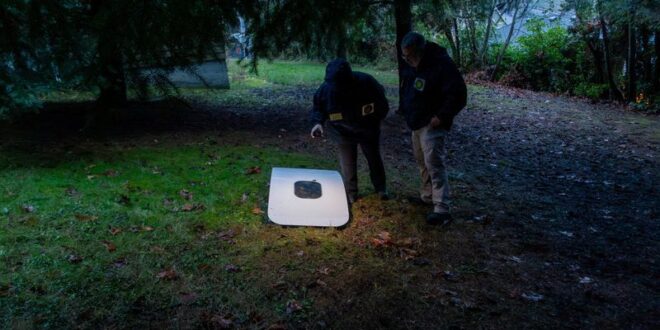(Reuters) – Schoolteacher Bob Sauer said he took a flashlight to his tree-filled backyard on Sunday evening on the small chance he might find a plane part that had torn off an Alaska Airlines jet on Friday at an altitude of about 16,000 feet (4,877 m).
U.S. authorities investigating the incident on the Boeing 737 MAX 9 that depressurized the plane, leading to an emergency landing, had asked people in the Cedar Hills suburb of Portland, Oregon to look out for the missing door plug as a vital piece of evidence.
“In the flashlight beam I could see that there was something gleaming white underneath the trees in the back that isn’t normally there,” Sauer told Reuters on Monday from his large garden near the suburb the National Transportation Safety Board (NTSB) had identified as a possible landing spot.
“It was very obviously part of a plane. It had the same curvature as a fuselage, it had a plane type window in it, and it was white.” Sauer had found a panel known as a mid-cabin door plug that is used to replace an exit that would be installed on planes configured to carry more passengers.
“My heart did start beating a little fast at that point because I thought: Oh my goodness, people have been looking for this all weekend and it looks like it is in my backyard!” he said.
The panel has been sent to a NTSB lab in Washington for further examination, the agency said.
“They pulled it out and laid it onto the grass. Even though it was raining this morning they were up close shining their light on it and taking pictures,” Sauer said of the NTSB representatives who arrived at his home once he called in the find.
Sauer, a science teacher whose students had just been learning about the physics principles of impulse and momentum, said his trees had acted like an air bag.
“I don’t think the door was damaged at all by the fall,” he said.
(Reporting by Deborah Bloom in Portland, Oregon; Writing by Lisa Barrington; Editing by Jamie Freed)
 BeritaKini.biz Berita Viral Terkini di Malaysia
BeritaKini.biz Berita Viral Terkini di Malaysia





